Home>Kitchen & Cooking>Kitchen Gadgets & Utensils>What Are Trash Bags Made Of
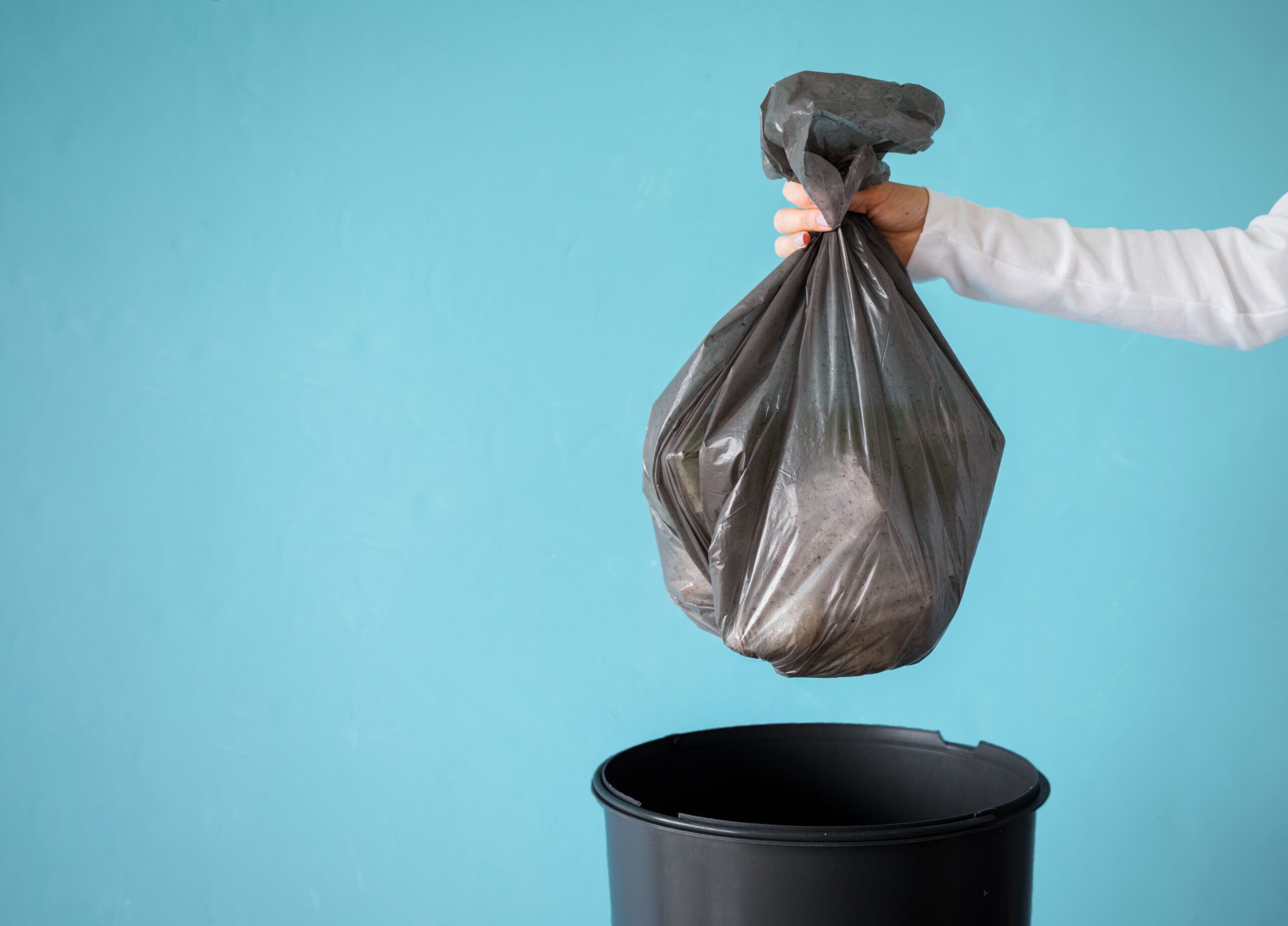

Kitchen Gadgets & Utensils
What Are Trash Bags Made Of
Published: February 14, 2024
Discover what trash bags are made of and how they contribute to waste management. Explore the materials and benefits of these essential kitchen gadgets and utensils.
(Many of the links in this article redirect to a specific reviewed product. Your purchase of these products through affiliate links helps to generate commission for Storables.com, at no extra cost. Learn more)
Introduction
Trash bags are an essential part of our daily lives, aiding in the efficient disposal of waste and helping to maintain cleanliness in our homes and communities. These versatile bags come in various materials, each offering unique benefits and functionalities. Understanding the composition of trash bags can provide valuable insights into their environmental impact and practical uses.
In this article, we will delve into the diverse materials used in the production of trash bags, ranging from traditional plastic options to eco-friendly alternatives such as biodegradable and compostable options. By exploring the composition and characteristics of these different types of trash bags, you will gain a deeper understanding of their role in waste management and environmental sustainability.
Let's embark on a fascinating journey through the world of trash bags, uncovering the materials that shape their functionality and environmental footprint. Whether you're seeking durability, eco-friendliness, or specific disposal capabilities, this exploration will equip you with the knowledge needed to make informed decisions when selecting the most suitable trash bags for your needs.
Key Takeaways:
- Trash bags come in various materials, from durable plastic to eco-friendly options like biodegradable and compostable bags. Understanding their composition helps us make informed choices for waste management.
- Biodegradable and compostable trash bags offer eco-friendly alternatives to traditional plastic bags, supporting sustainable waste management and reducing environmental impact. Embracing these innovative materials contributes to a more harmonious relationship with the environment.
Read more: What Trash Bags Are Recyclable
Plastic Trash Bags
Plastic trash bags have long been a staple in waste management, offering durability and versatility for various disposal needs. These bags are commonly made from high-density polyethylene (HDPE) or low-density polyethylene (LDPE), both of which are types of thermoplastic polymers. HDPE trash bags are known for their robustness, making them suitable for heavy-duty applications such as construction debris or sharp-edged waste. On the other hand, LDPE trash bags are more flexible and are often used for general household and office waste.
The production process of plastic trash bags involves extruding the polymer material into thin, flexible sheets, which are then cut and sealed to form the familiar bag shape. The inherent strength of these bags allows them to withstand substantial weight without tearing, making them a reliable choice for containing and transporting various types of refuse.
Plastic trash bags come in a range of sizes and thicknesses, catering to diverse needs and preferences. The thickness of these bags is measured in mils, with thicker options offering increased puncture resistance and load-bearing capacity. Additionally, many plastic trash bags feature drawstring closures or easy-tie handles, enhancing convenience during disposal and transportation.
While plastic trash bags are valued for their strength and affordability, they have raised environmental concerns due to their non-biodegradable nature. Improper disposal of plastic bags can contribute to pollution and harm wildlife, making it crucial for consumers to consider sustainable alternatives when possible.
Despite these environmental considerations, plastic trash bags remain a practical choice for specific applications where durability and containment are paramount. By understanding the composition and characteristics of plastic trash bags, consumers can make informed decisions regarding their usage and explore eco-friendly options for minimizing environmental impact.
In the next sections, we will delve into alternative types of trash bags, including biodegradable, compostable, and paper options, each offering distinct advantages in waste management and environmental sustainability. Let's continue our exploration to uncover the diverse materials that shape the functionality and eco-friendliness of these essential waste disposal products.
Biodegradable Trash Bags
Biodegradable trash bags have emerged as a promising eco-friendly alternative to traditional plastic bags, addressing concerns about environmental impact and sustainability. These bags are designed to break down naturally over time, reducing the long-term accumulation of waste in landfills and ecosystems. The composition of biodegradable trash bags typically involves organic materials such as plant-based polymers, which undergo decomposition through natural processes.
One common material used in the production of biodegradable trash bags is polylactic acid (PLA), a bioplastic derived from renewable resources such as cornstarch or sugarcane. PLA-based bags offer comparable strength and flexibility to traditional plastic bags while presenting the advantage of biodegradability. As these bags degrade, they release carbon dioxide and water, leaving behind organic matter that integrates into the environment without causing harm.
Another notable component in biodegradable trash bags is Mater-Bi, a bio-based polymer created from starches, cellulose, and vegetable oils. This innovative material provides a sustainable alternative to conventional plastics, offering biodegradability without compromising on performance. Mater-Bi-based trash bags exhibit resilience and decomposition properties that align with eco-conscious waste management practices.
The production process of biodegradable trash bags emphasizes sustainable manufacturing methods and renewable resources, contributing to a reduced environmental footprint compared to traditional plastic bag production. By utilizing plant-derived materials, these bags support the circular economy by minimizing reliance on non-renewable fossil fuels and promoting the responsible use of natural resources.
Consumers seeking eco-friendly waste disposal solutions can benefit from the availability of biodegradable trash bags, which offer a balance of functionality and environmental responsibility. These bags provide a practical means of reducing plastic waste accumulation while supporting sustainable practices in waste management. Whether used for household, commercial, or industrial purposes, biodegradable trash bags represent a proactive step towards minimizing the environmental impact of waste disposal.
As the demand for sustainable products continues to grow, the development and utilization of biodegradable trash bags contribute to a more environmentally conscious approach to waste management. By incorporating these innovative materials into everyday waste disposal practices, individuals and businesses can actively contribute to the preservation of our planet's ecosystems and natural resources.
The exploration of biodegradable trash bags underscores the potential for sustainable alternatives to traditional plastic bags, offering a glimpse into the evolving landscape of eco-friendly waste management solutions. As we continue to prioritize environmental stewardship, the adoption of biodegradable trash bags represents a significant stride towards a more sustainable and harmonious coexistence with our planet.
When looking for trash bags, consider the material they are made of. Most are made from high-density polyethylene (HDPE) or low-density polyethylene (LDPE), which are durable and resistant to tears and punctures.
Compostable Trash Bags
Compostable trash bags represent a significant advancement in sustainable waste management, offering a biodegradable solution that aligns with eco-conscious practices. These bags are designed to break down into natural components within a composting environment, contributing to the production of nutrient-rich compost for soil enrichment. Composed of organic materials that undergo decomposition through industrial or home composting processes, compostable trash bags provide a renewable and environmentally responsible alternative to traditional plastic bags.
One of the key materials used in the production of compostable trash bags is a bio-based polymer known as polylactic acid (PLA), derived from renewable resources such as cornstarch or sugarcane. PLA-based compostable bags exhibit robustness and flexibility, making them suitable for a wide range of waste disposal needs. As these bags undergo composting, they transform into organic matter, leaving behind no harmful residues and supporting the natural cycle of nutrient regeneration in the soil.
In addition to PLA, compostable trash bags may incorporate other plant-based materials such as Mater-Bi, a bio-polymer created from starches, cellulose, and vegetable oils. The utilization of these renewable resources in compostable bag production underscores a commitment to sustainable manufacturing practices and the reduction of environmental impact. By embracing compostable trash bags, consumers can actively contribute to the circular economy by supporting the conversion of organic waste into valuable compost for agricultural and horticultural purposes.
The production and utilization of compostable trash bags emphasize the importance of responsible waste management and resource conservation. These bags offer a practical and eco-friendly solution for waste containment and disposal, catering to both residential and commercial needs. Whether used in household kitchens, community composting programs, or organic waste management initiatives, compostable trash bags play a vital role in promoting sustainable practices and reducing the reliance on non-biodegradable plastics.
As the demand for environmentally friendly products continues to grow, compostable trash bags have garnered attention for their positive impact on waste diversion and soil enrichment. By embracing compostable waste management solutions, individuals and organizations can contribute to the preservation of natural ecosystems and the reduction of landfill waste. The integration of compostable trash bags into everyday waste disposal practices represents a proactive step towards fostering a more sustainable and harmonious relationship with the environment.
The exploration of compostable trash bags underscores the potential for innovative and sustainable alternatives to traditional plastic bags, offering a glimpse into the evolving landscape of eco-friendly waste management solutions. As we continue to prioritize environmental stewardship, the adoption of compostable trash bags represents a significant stride towards a more sustainable and harmonious coexistence with our planet.
Paper Trash Bags
Paper trash bags offer a sustainable and eco-friendly alternative to traditional plastic bags, catering to the growing demand for environmentally responsible waste management solutions. These bags are crafted from durable and biodegradable paper materials, providing a versatile option for containing various types of waste while minimizing environmental impact.
The composition of paper trash bags typically involves sturdy kraft paper, known for its strength and resilience. This material is derived from wood pulp, making it renewable and biodegradable, aligning with sustainable practices in waste containment and disposal. The production process of paper trash bags emphasizes the utilization of natural resources and eco-friendly manufacturing methods, contributing to reduced environmental impact compared to non-biodegradable plastic bags.
Paper trash bags are available in a range of sizes and capacities, catering to diverse waste disposal needs in residential, commercial, and industrial settings. These bags offer reliable containment for a variety of waste types, including dry and non-sharp materials. Additionally, many paper trash bags feature reinforced bottoms and leak-resistant designs, enhancing their suitability for handling organic and moisture-prone waste.
One of the notable advantages of paper trash bags is their biodegradability, which supports the natural decomposition of waste without leaving harmful residues. When disposed of in composting environments or landfills, paper bags break down over time, integrating into the ecosystem without contributing to long-term waste accumulation. This eco-friendly characteristic makes paper trash bags a preferred choice for individuals and organizations seeking sustainable waste management solutions.
In addition to their biodegradability, paper trash bags are recyclable, further contributing to their eco-friendly profile. By diverting paper waste from landfills and participating in recycling programs, consumers can support the circular economy and minimize the environmental impact of waste disposal. The recyclability of paper bags aligns with the principles of resource conservation and sustainable material usage, offering a holistic approach to waste management.
The utilization of paper trash bags underscores the potential for sustainable alternatives to traditional plastic bags, providing a glimpse into the evolving landscape of eco-friendly waste management solutions. As the demand for environmentally responsible products continues to grow, the adoption of paper trash bags represents a proactive step towards reducing plastic waste accumulation and promoting sustainable practices in waste containment and disposal.
The exploration of paper trash bags highlights their role in supporting eco-conscious waste management practices, offering a practical and environmentally responsible solution for containing and disposing of waste. By embracing paper bags as a sustainable alternative, individuals and businesses can contribute to the preservation of natural ecosystems and the reduction of non-biodegradable waste, fostering a more harmonious relationship with the environment.
In summary, paper trash bags stand as a testament to the potential for sustainable and eco-friendly waste management solutions, providing a viable alternative to traditional plastic bags. As we continue to prioritize environmental stewardship, the integration of paper trash bags into everyday waste disposal practices represents a significant stride towards a more sustainable and harmonious coexistence with our planet.
Read more: What Size Trash Bags Are There
Conclusion
In conclusion, the diverse materials used in the production of trash bags offer a spectrum of functionalities and environmental implications, catering to the evolving needs of waste management and sustainability. From traditional plastic bags to innovative biodegradable, compostable, and paper alternatives, the world of trash bags encompasses a rich tapestry of materials that shape their performance and eco-friendliness.
Plastic trash bags, characterized by their durability and affordability, have long been a staple in waste containment and transportation. However, their non-biodegradable nature has prompted a shift towards eco-friendly alternatives. Biodegradable trash bags, incorporating organic materials such as polylactic acid (PLA) and Mater-Bi, present a promising solution for reducing plastic waste accumulation and supporting sustainable waste management practices. These bags undergo natural decomposition, leaving behind organic matter that integrates into the environment without causing harm.
Compostable trash bags, crafted from bio-based polymers like PLA and Mater-Bi, offer a renewable and environmentally responsible option for waste containment and disposal. These bags break down into natural components within composting environments, contributing to the production of nutrient-rich compost for soil enrichment. By supporting the circular economy and minimizing reliance on non-biodegradable plastics, compostable trash bags represent a proactive step towards sustainable waste management.
Paper trash bags, derived from sturdy kraft paper, provide a sustainable and biodegradable alternative to traditional plastic bags. Their eco-friendly composition aligns with principles of resource conservation and sustainable material usage, offering a versatile solution for containing various types of waste while minimizing environmental impact. The recyclability of paper bags further contributes to their eco-friendly profile, supporting the circular economy and waste diversion from landfills.
As the demand for environmentally responsible products continues to grow, the adoption of biodegradable, compostable, and paper trash bags represents a significant stride towards reducing plastic waste accumulation and promoting sustainable practices in waste containment and disposal. By embracing these innovative materials, individuals and businesses can actively contribute to the preservation of natural ecosystems and the reduction of non-biodegradable waste, fostering a more harmonious relationship with the environment.
In essence, the exploration of diverse trash bag materials underscores the potential for sustainable and eco-friendly waste management solutions, offering a glimpse into the evolving landscape of environmentally conscious practices. As we continue to prioritize environmental stewardship, the integration of eco-friendly trash bags into everyday waste disposal practices represents a proactive step towards a more sustainable and harmonious coexistence with our planet.
Frequently Asked Questions about What Are Trash Bags Made Of
Was this page helpful?
At Storables.com, we guarantee accurate and reliable information. Our content, validated by Expert Board Contributors, is crafted following stringent Editorial Policies. We're committed to providing you with well-researched, expert-backed insights for all your informational needs.
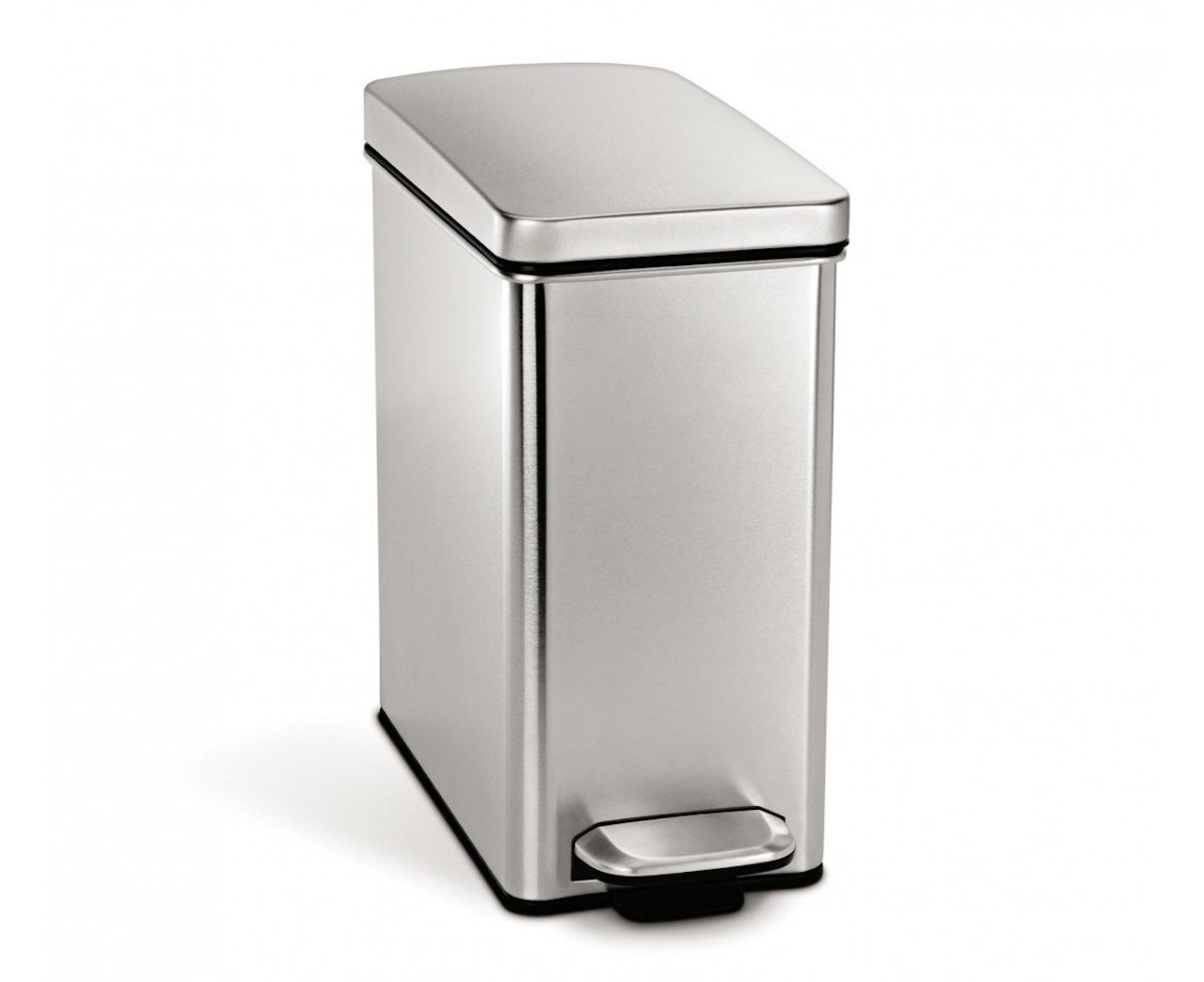
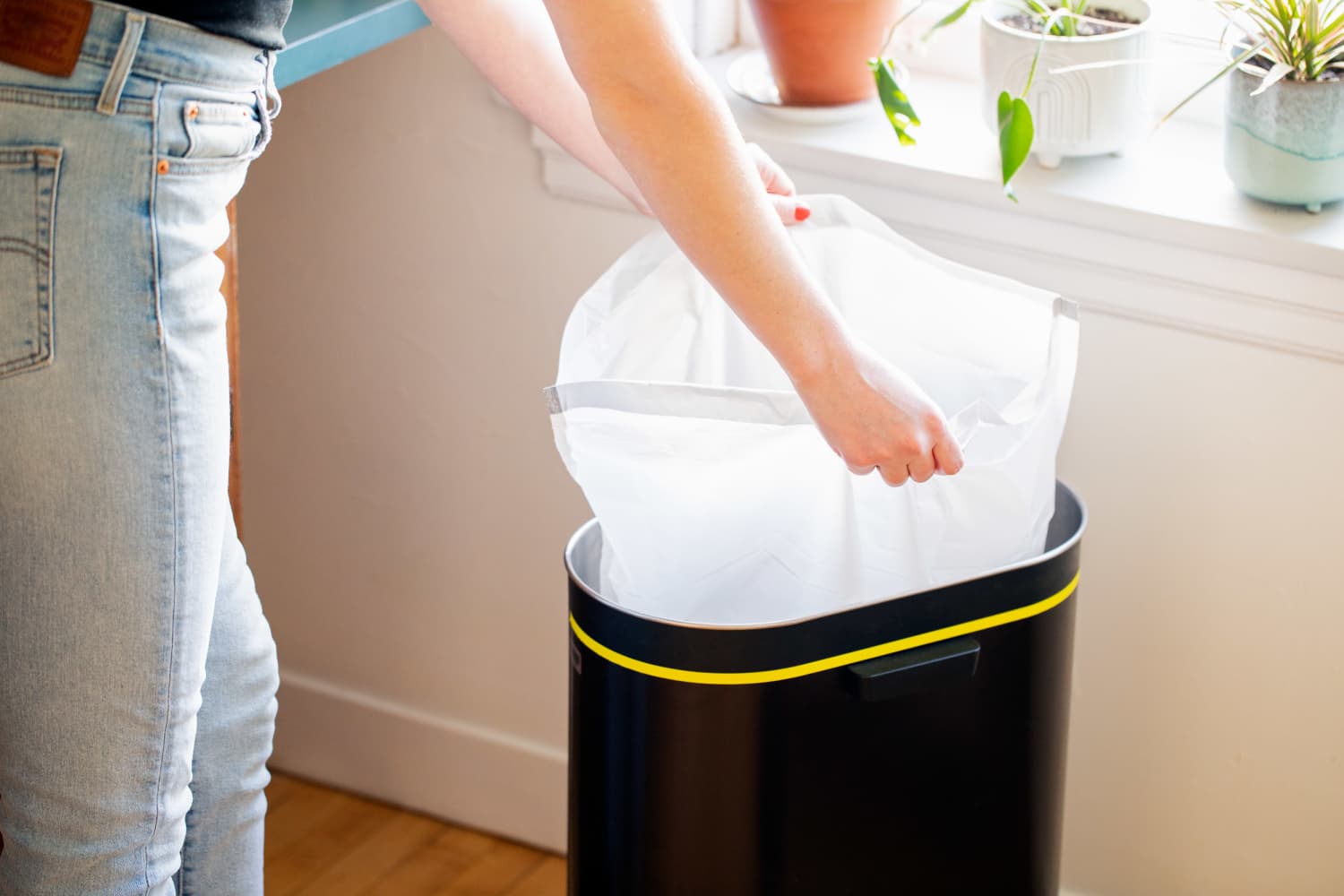
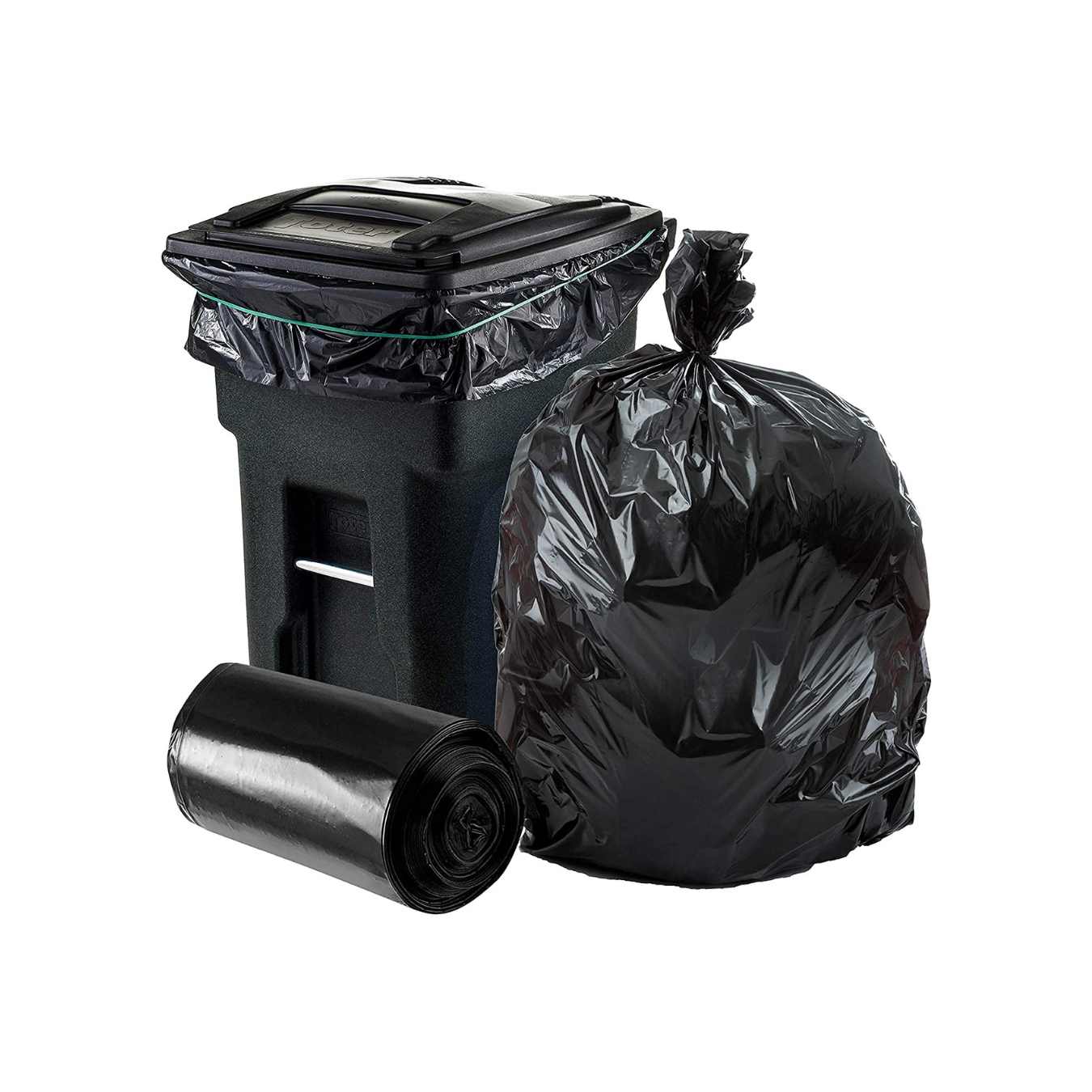

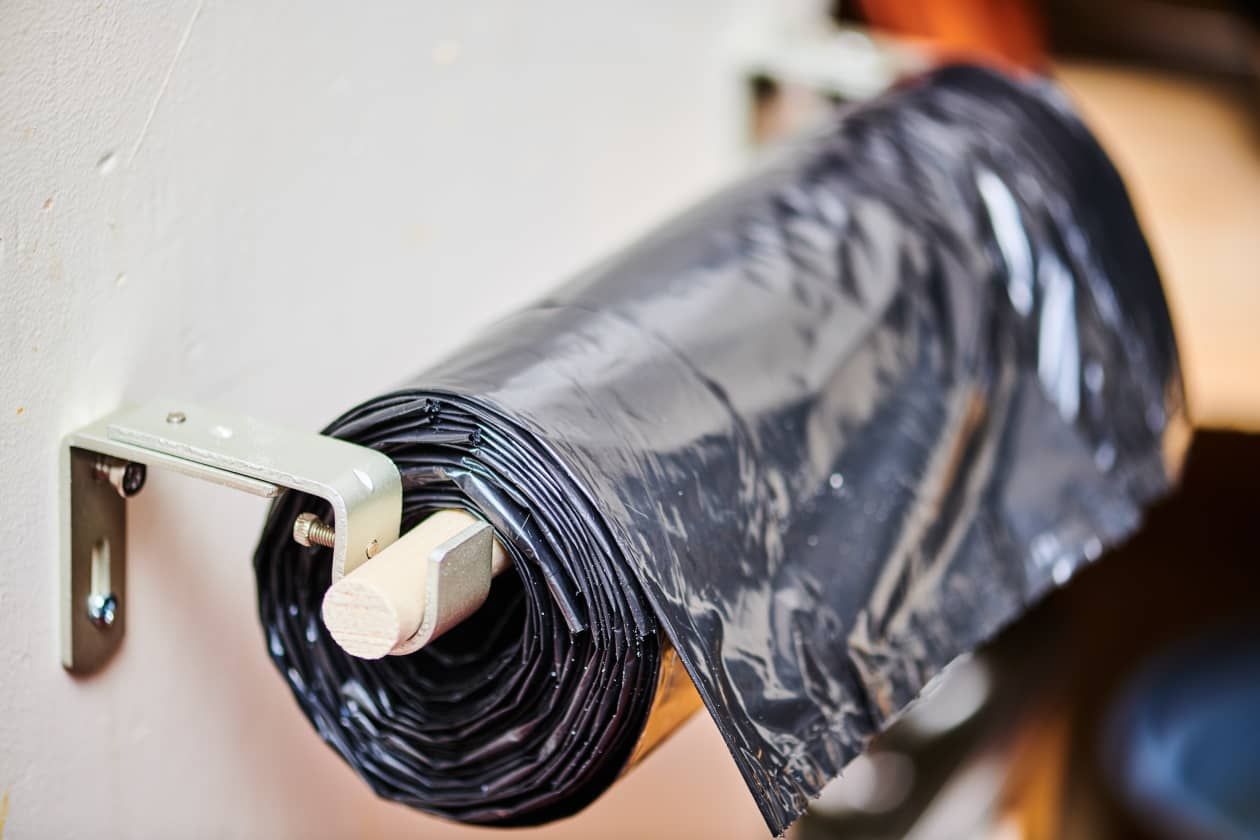
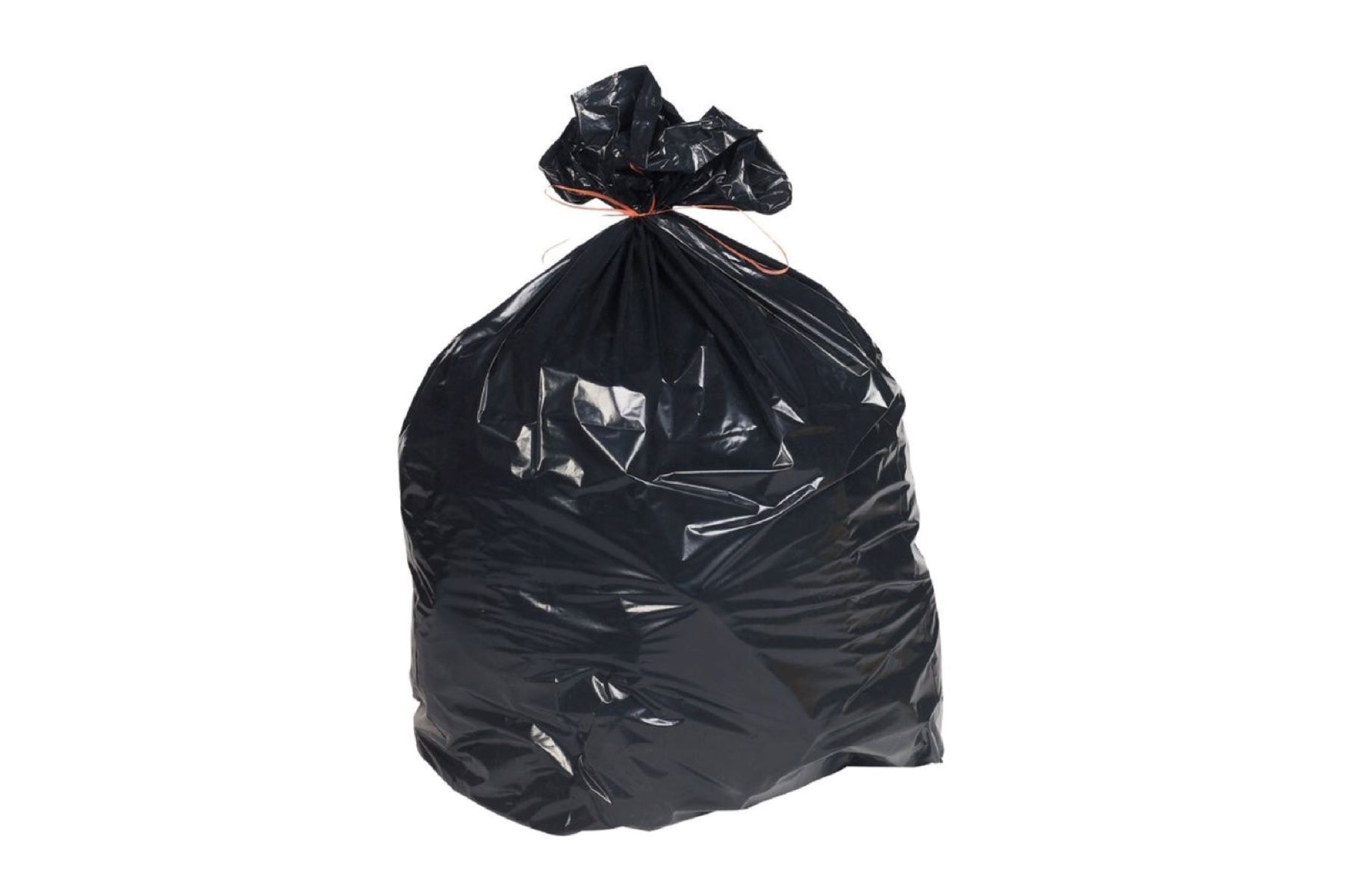
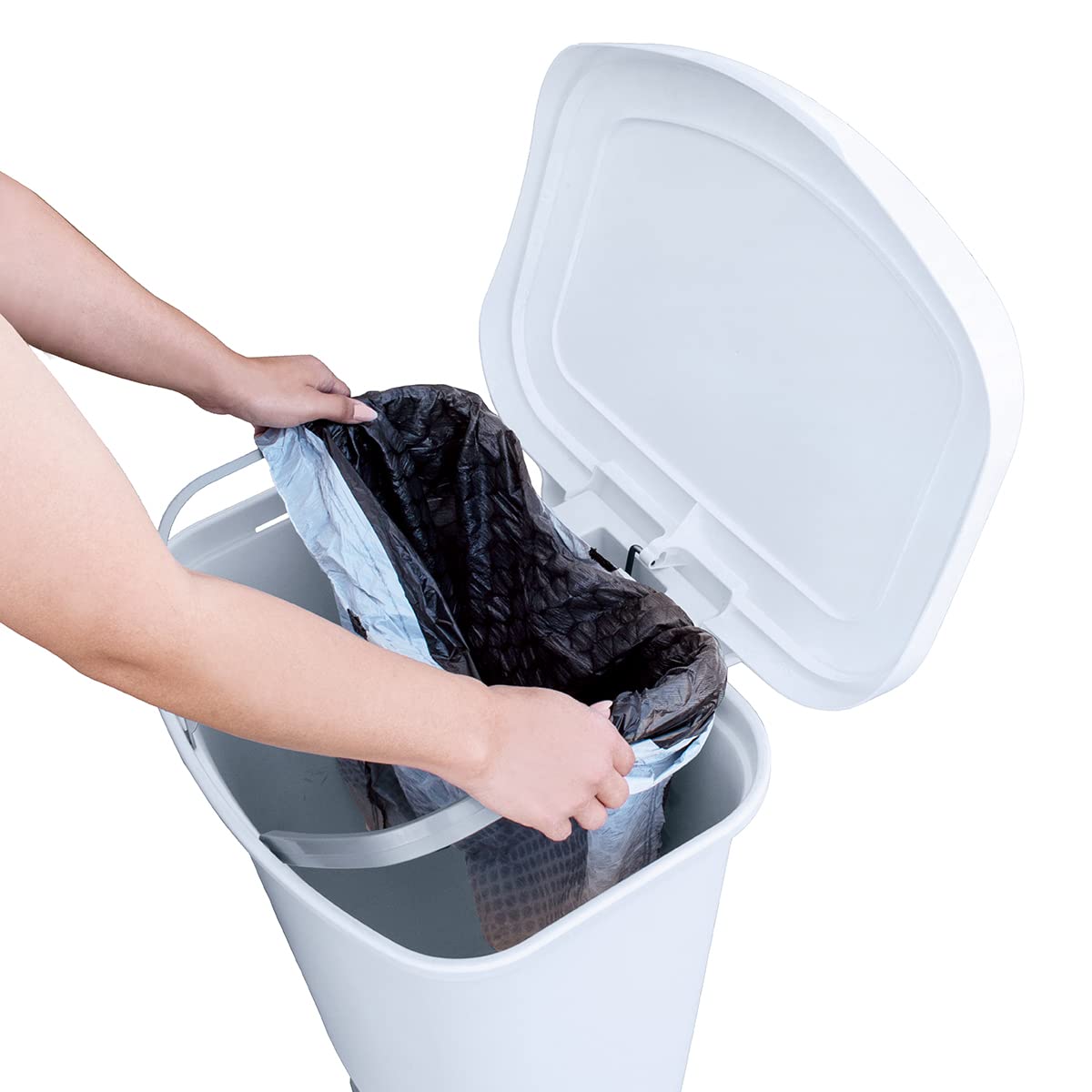
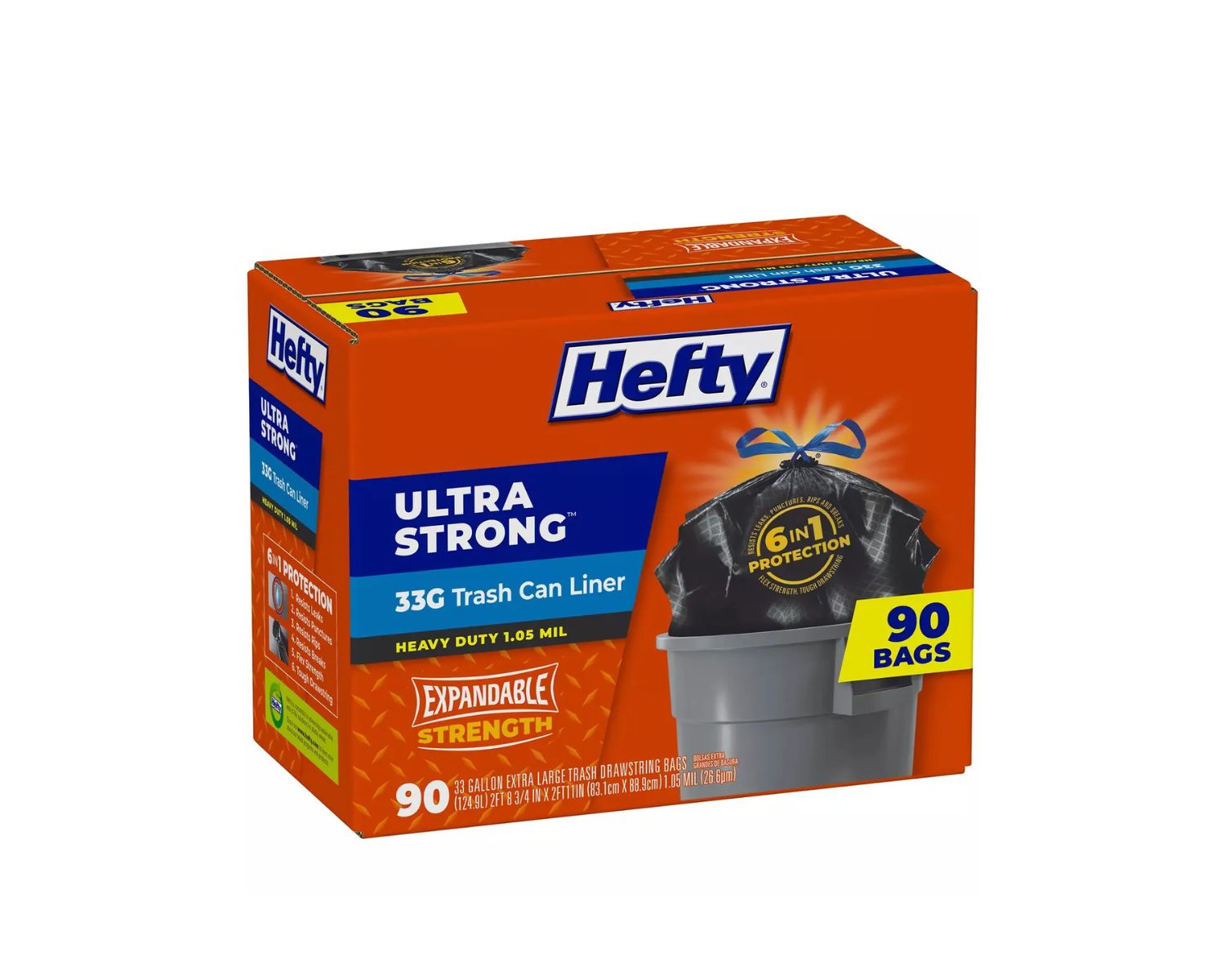
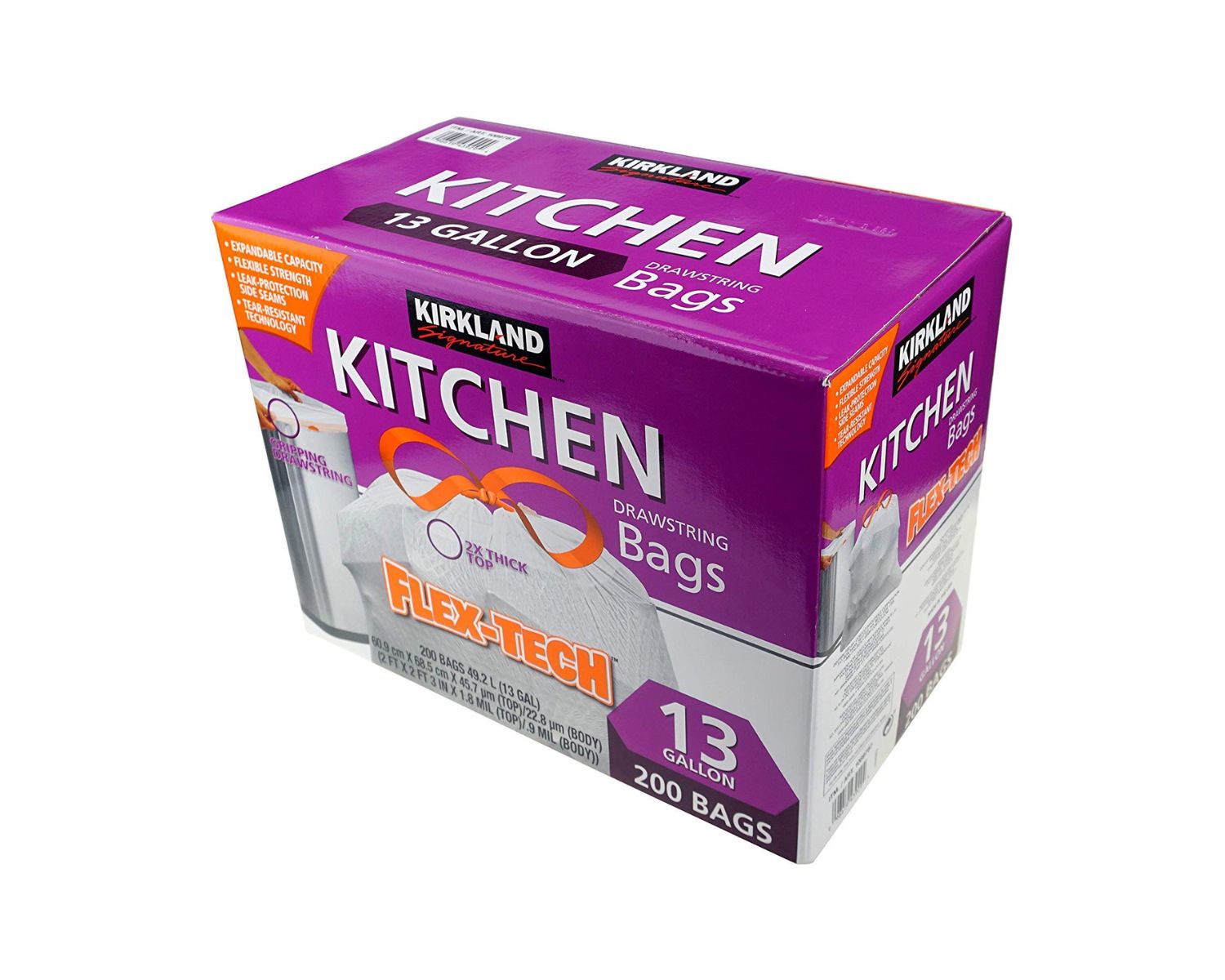

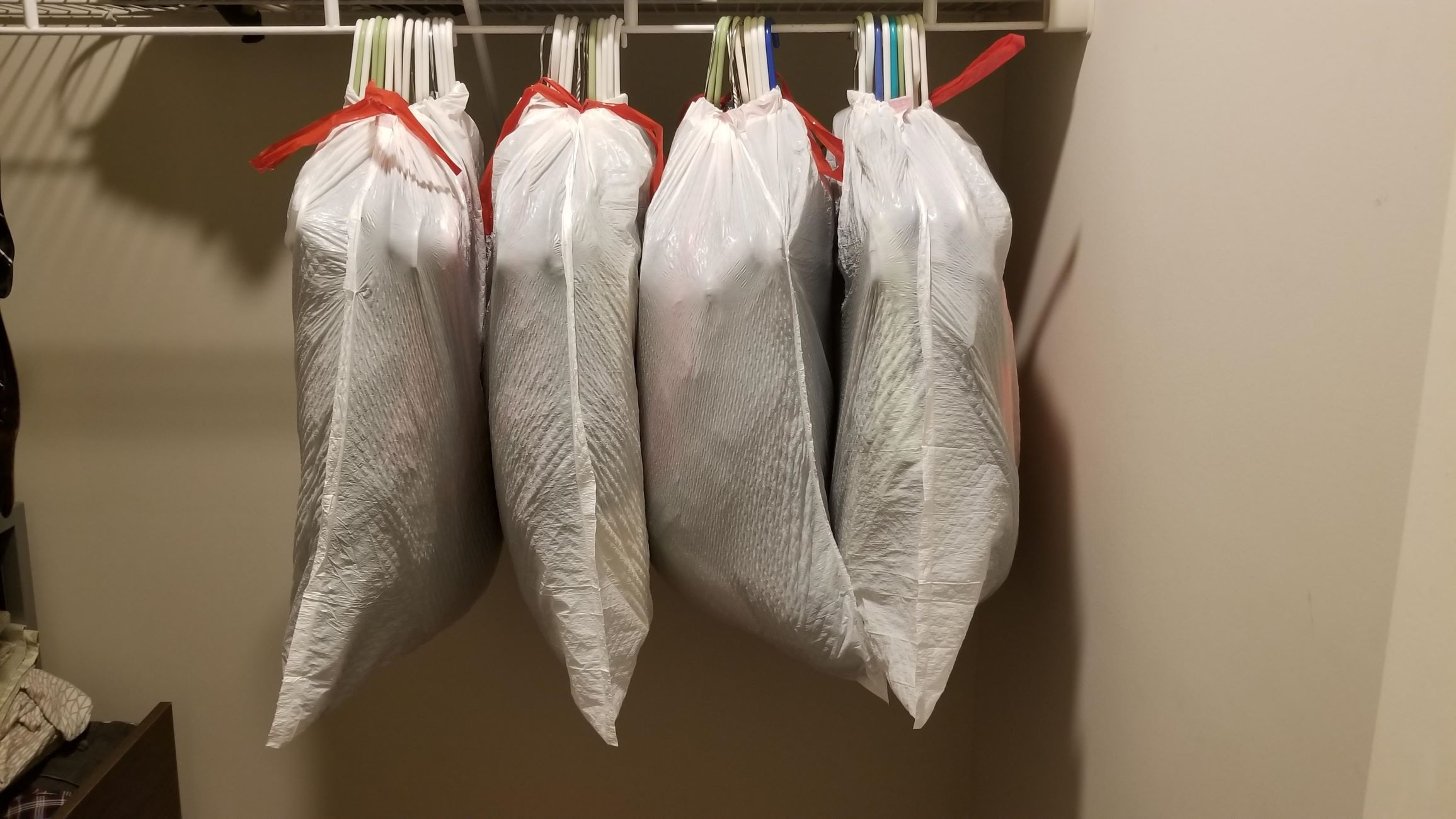
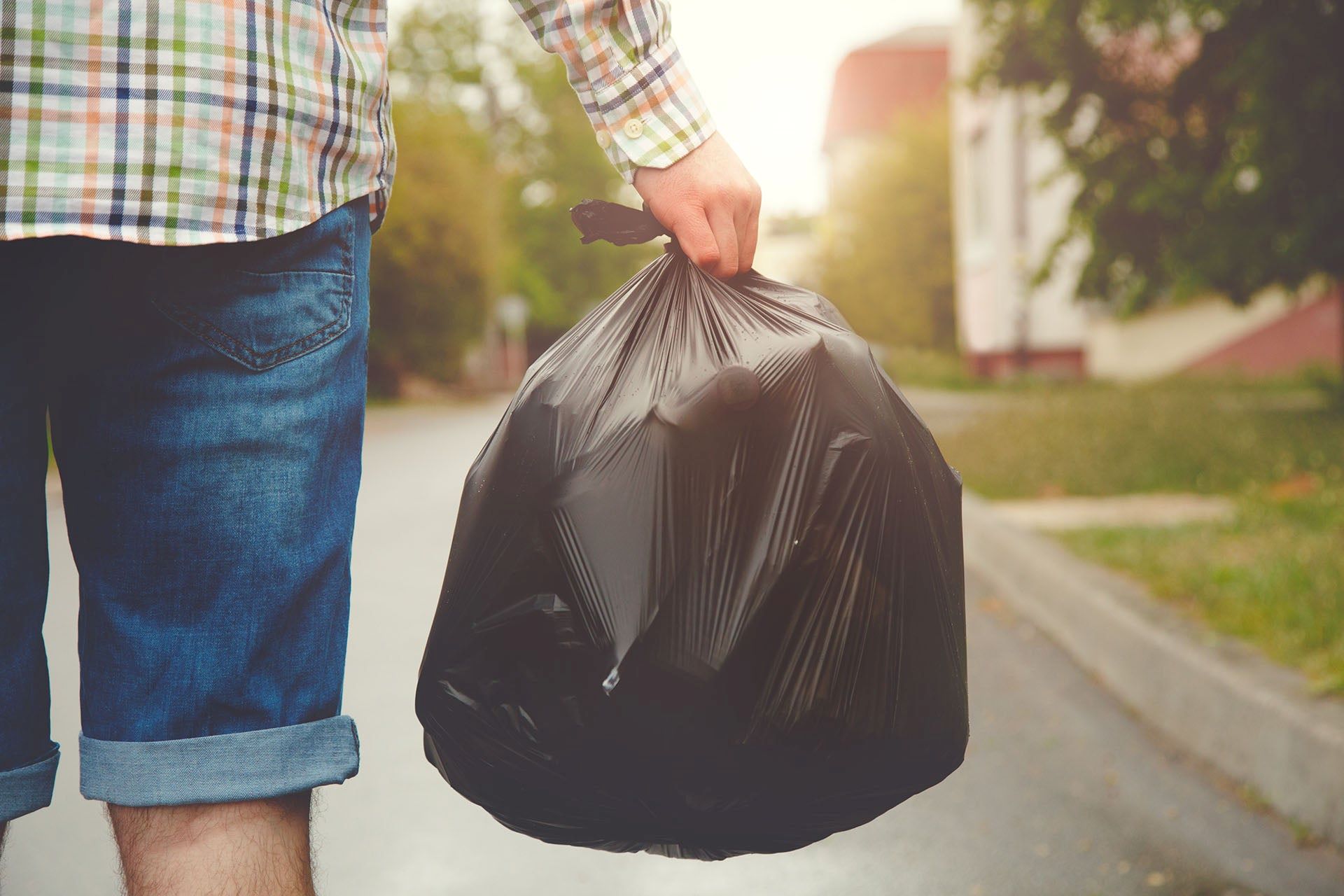
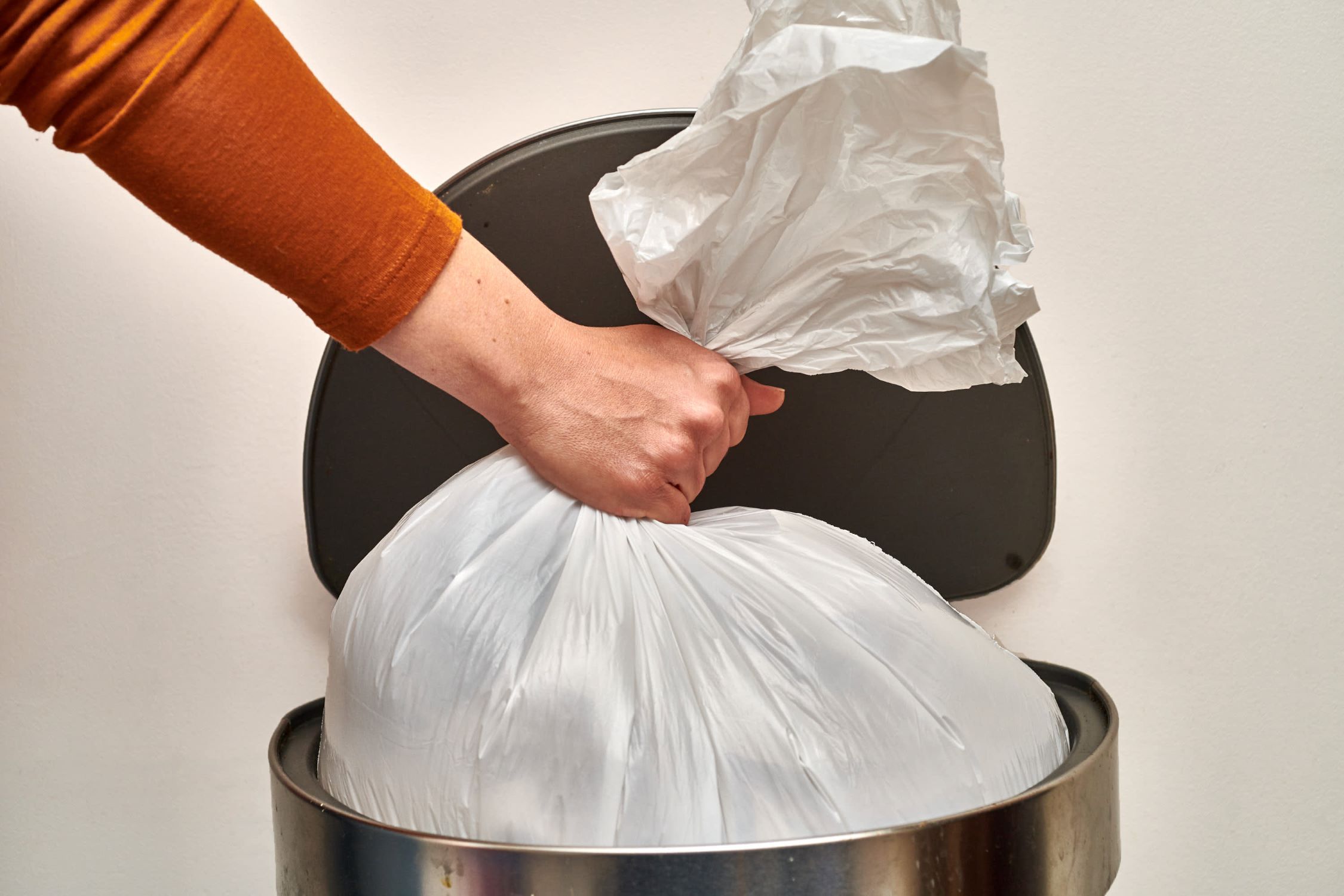


0 thoughts on “What Are Trash Bags Made Of”